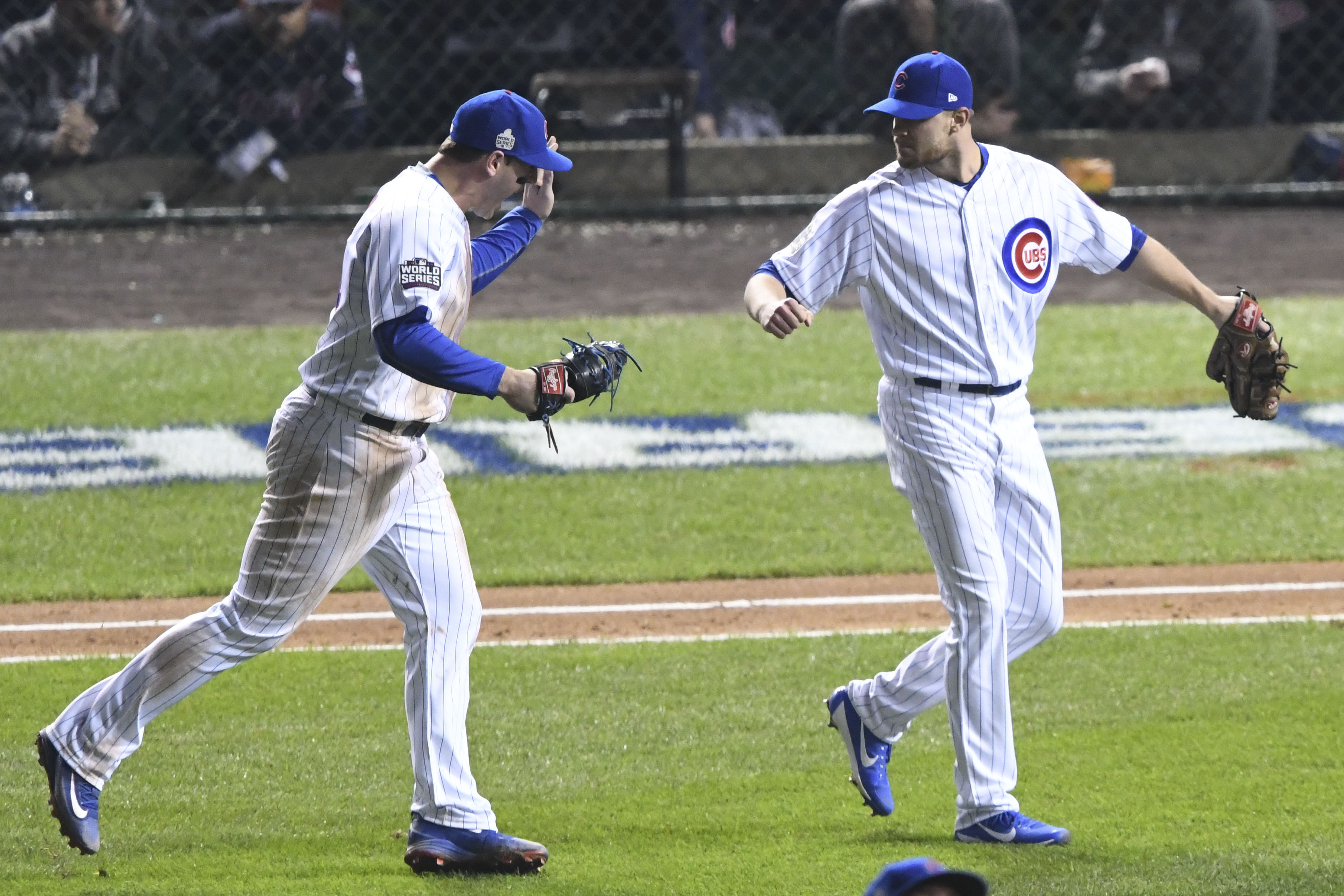This recap, written by Baseball Prospectus’s Rian Watt, forms part of the main site’s comprehensive coverage of the postseason, “Playoff Prospectus”.
Sometimes, a universe turns on a single moment, and sometimes that moment doesn’t matter. Two such moments of interest from last night’s game, which the Indians ended up winning 1-0.
With one out in the fifth inning, Kyle Hendricks‘ last pitch of the evening clipped Jason Kipnis, sending the burly second baseman to first and loading the bases for Cleveland in a 0-0 game. At that point, Joe Maddon had seen enough, and the decision to pull Hendricks was fairly straightforward. Hendricks had pitched effectively enough for the previous four innings, but had leaned too heavily on an inconsistent strike zone (as called by John Hirschbeck) and left a pitch or two higher in the zone than you’d like on a night when the wind was whipping out of Wrigley Field to left.
And so, Hendricks’ night was done, after just 4 ⅓ innings. So far, so easy. But who to bring in? After an off day, and withFrancisco Lindor—the hottest hitter on either team—at the plate, the Cubs had a litany of options at their disposal.Aroldis Chapman was available. Pedro Strop was available. Hector Rondon was available. Heck, even Carl Edwards Jr. was available, and Travis Wood and Mike Montgomery. But Maddon went with Justin Grimm, the fourth or fifth guy in the Cubs’ pen.
Grimm wasn’t a bad choice, to be clear—he generates ground balls at about a 40 percent clip, and strikes batters out only a quarter less often—but, with the game on the line, he sure as hell wasn’t the first name to come to mind. Process says, in a moment like that, you bring in your top reliever, inning be damned. But, you know, who gives a heck about process. Grimm, prior to last night, had thrown to 38 batters with the bases loaded. He had not generated a single double play. On his sixth pitch to Lindor, after getting ahead 0-2 early and then falling back to a full count with three straight balls, he finally got the twin killing he’d been looking for, and the Cubs left the inning with a seven percent better chance to win than they’d had at the outset.
“For me, it was just feel it up and attack,” Grimm told me after the game of his approach to Lindor. “And then try to get him to chase. He worked me hard near the end of that at-bat, but I was able to execute the last pitch in the way I wanted to get the out.”
Whatever Grimm was up to, it worked. I’m still not sure he was the right call in that spot—had I been in Maddon’s shoes, I’d probably have flinched, and burned Chapman early—but the outcome came through. “God doesn’t play dice with the universe,” said Einstein, famously, but he probably hadn’t watched very many baseball games.
To read the rest of the piece, please head on over to the main site.
Lead photo courtesy Jerry Lai—USA Today Sports.
